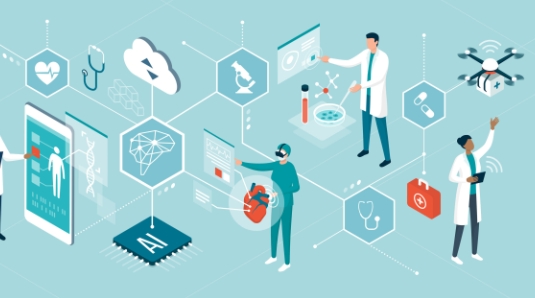Technology has undoubtedly revolutionized the healthcare industry in the past few decades. From electronic health records to telemedicine, these advancements have improved patient care and made healthcare more accessible than ever before.
Electronic Health Records
Gone are the days of paper charts and files. Electronic health records (EHRs) have digitized patient information, making it easier for healthcare providers to track a patient’s medical history, medications, and treatments. This has led to better coordination of care and improved communication between providers.
Telemedicine
Telemedicine allows patients to have virtual appointments with healthcare providers from the comfort of their own homes. This has been especially helpful during the COVID-19 pandemic, allowing patients to receive care without risking exposure to the virus. Telemedicine has also increased access to healthcare for those in rural or underserved areas.
Wearable Technology
Wearable technology, such as fitness trackers and smartwatches, can monitor a patient’s vital signs and physical activity. This data can be shared with healthcare providers, allowing for more personalized and preventative care. Wearable technology can also help patients stay motivated and engaged in their own health.
Artificial Intelligence
Artificial intelligence (AI) has the potential to revolutionize healthcare by analyzing vast amounts of data to identify trends and patterns. AI can improve diagnostics, streamline administrative tasks, and even assist in surgery. This technology has the power to revolutionize healthcare delivery and improve patient outcomes.
Robotic Surgery
Robotic surgery has transformed the way surgeries are performed by allowing for more precise and minimally invasive procedures. Surgeons can control robotic arms with greater dexterity and accuracy, leading to faster recovery times and fewer complications for patients.
In conclusion, technology has had a profound impact on the healthcare industry, improving patient care, increasing access to services, and revolutionizing medical practices. As technology continues to advance, the future of healthcare looks brighter than ever before.

